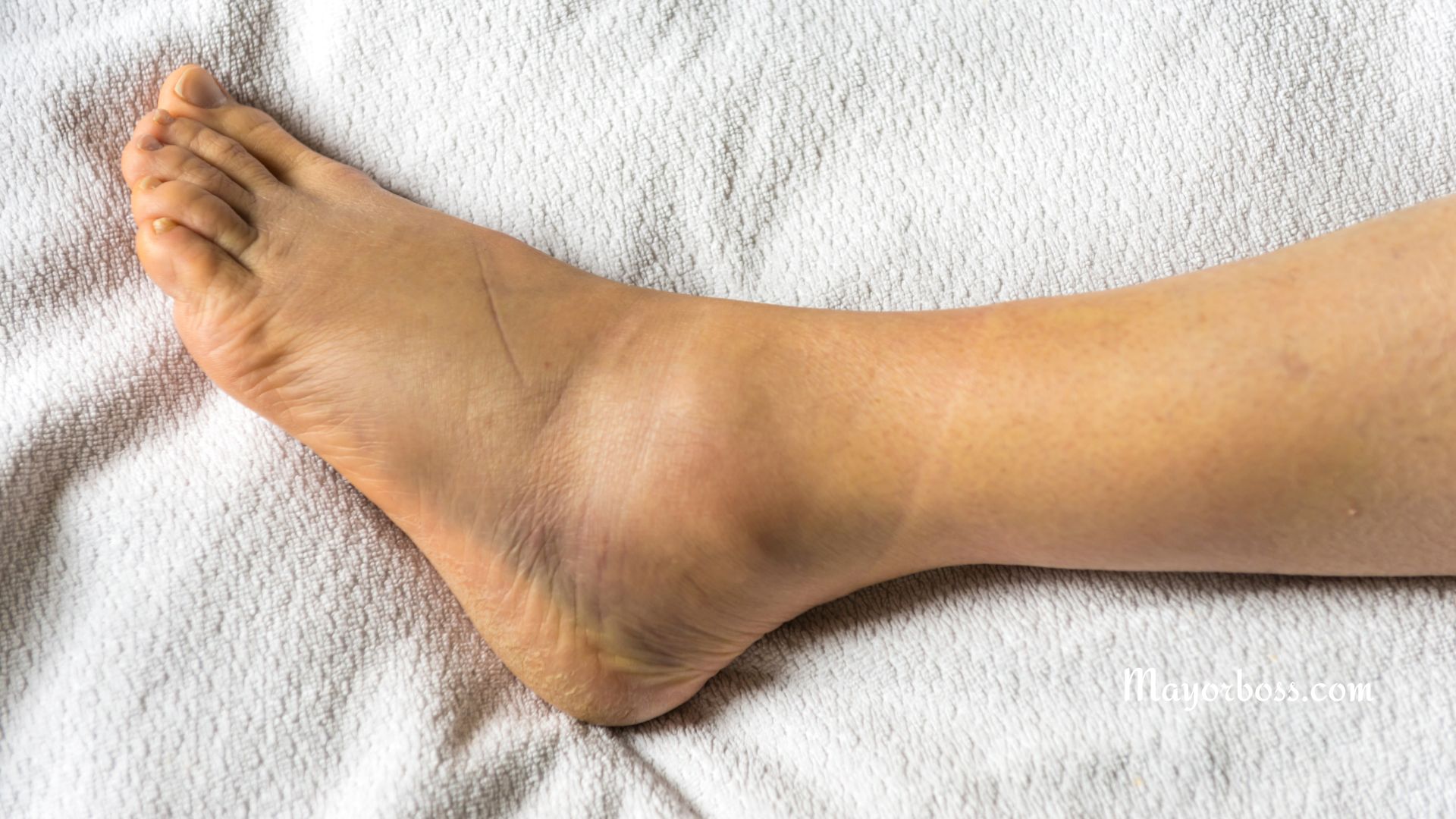Why Your Legs May Be Swollen
Swollen legs can be concerning, especially if the swelling happens suddenly or seems severe. There are a lot of reasons why your legs might swell up, from simple things to serious health problems. In this article, we’ll go over the most common reasons why your legs might be swollen to help you understand what could be happening.

Leg Swelling Might Be Due to Fluid Retention in the Tissues
Swelling in your legs often happens because of fluid buildup, called edema. It can occur for different reasons, like sitting or standing for a long time, hot weather, or eating salty foods. When you sit or stand for hours, your leg muscles don’t move enough to help pump the fluid back, which makes your legs swell.
Venous Insufficiency May Cause Your Legs to Swell
Chronic venous insufficiency is another common reason for swollen legs. This happens when the veins in your legs have trouble sending blood back to your heart. Normally, valves in your veins keep blood moving in the right direction. But if these valves get weak or damaged, blood can collect in your lower legs and cause swelling.
This condition usually develops slowly, and you might also notice symptoms like aching, changes in skin color, or a feeling of heaviness in your legs. The Cleveland Clinic says that chronic venous insufficiency is more likely to happen to older adults and people who are overweight.
Heart, Kidney, or Liver Problems Could Be Behind the Swelling
Sometimes, swelling in your legs can be a sign of heart, kidney, or liver problems. If your heart isn’t pumping well, fluid can build up in your legs. This is called congestive heart failure. Kidney problems can also cause swelling because the kidneys aren’t able to get rid of extra fluid properly. And with liver disease, the liver may not make enough proteins to keep the fluid in balance, which can cause swelling.
If you have swelling along with symptoms like shortness of breath, tiredness, or swelling in other parts of your body, you should contact your doctor right away.
Swollen Legs Might Be a Side Effect of Certain Medications
Some medicines can make your legs swell. Blood pressure medications like calcium channel blockers, such as amlodipine, as well as anti-inflammatory drugs, steroids, and some diabetes medications, can all cause fluid buildup. If you think a medicine is making your legs swell, talk to your doctor about other options or changes to your dosage. Do not stop taking medication without medical advice. Don’t stop taking your medicine without talking to your doctor first.
Injury or Infections May Cause One or Both Legs to Swell
If only one of your legs is swollen, it might be because of an injury or infection. A sprain, broken bone, or other injury can cause swelling and inflammation in that leg. An infection can also cause the tissues in your leg to swell, especially if you see redness, warmth, or feel pain. If you have diabetes or other conditions that affect blood flow, it’s important to watch for any injuries to avoid complications.
Blood Clots Can Result in Sudden Leg Swelling
Sudden swelling in one leg might mean you have a deep vein thrombosis (DVT), which is a blood clot in a deep vein, usually in the leg. This can be really serious because the clot could move to your lungs and cause a pulmonary embolism, which can be life-threatening. Signs of a DVT include sudden swelling, pain, warmth, and redness in one leg. If you think you might have a blood clot, get medical help right away.
Pregnancy-Related Swelling in the Legs
Pregnancy is another common reason for leg swelling. During pregnancy, your body holds onto more fluid, and the growing baby puts pressure on your veins, which can cause fluid buildup in the legs. This type of swelling is usually normal, especially in the later stages of pregnancy. But if the swelling happens suddenly or you also have symptoms like a headache or vision changes, it could be a sign of preeclampsia, which needs to be checked by a doctor.
Lifestyle Factors May Play a Role in Causing Swollen Legs
Sometimes, leg swelling is related to your lifestyle. For example, a diet that has too much salt can lead to water retention and swollen legs. Being overweight can also put extra pressure on your veins, making it harder for blood to get back to your heart, which leads to swelling. Regular exercise, eating less salt, staying hydrated, and keeping a healthy weight can help reduce swelling for many people.
When Should You Call a Doctor About Your Swollen Legs?
While leg swelling can have many harmless causes, there are times when you need to see a doctor. If you have swelling that happens suddenly, is painful, or comes with other symptoms like trouble breathing, chest pain, fever, or changes in skin color, get medical help right away. Even if you have constant swelling without other symptoms, you should still talk to your doctor because it could mean there is an underlying health problem.
The Takeaway
Swollen legs can happen for lots of reasons, from simple things like eating too much salt to more serious health problems. If you have swollen legs, think about things like recent activities, medications, or other symptoms that might help explain the cause. Always talk to your doctor if you aren’t sure about your symptoms or if the swelling doesn’t go away. Getting the right diagnosis and treatment can help solve the problem and make you feel better.






